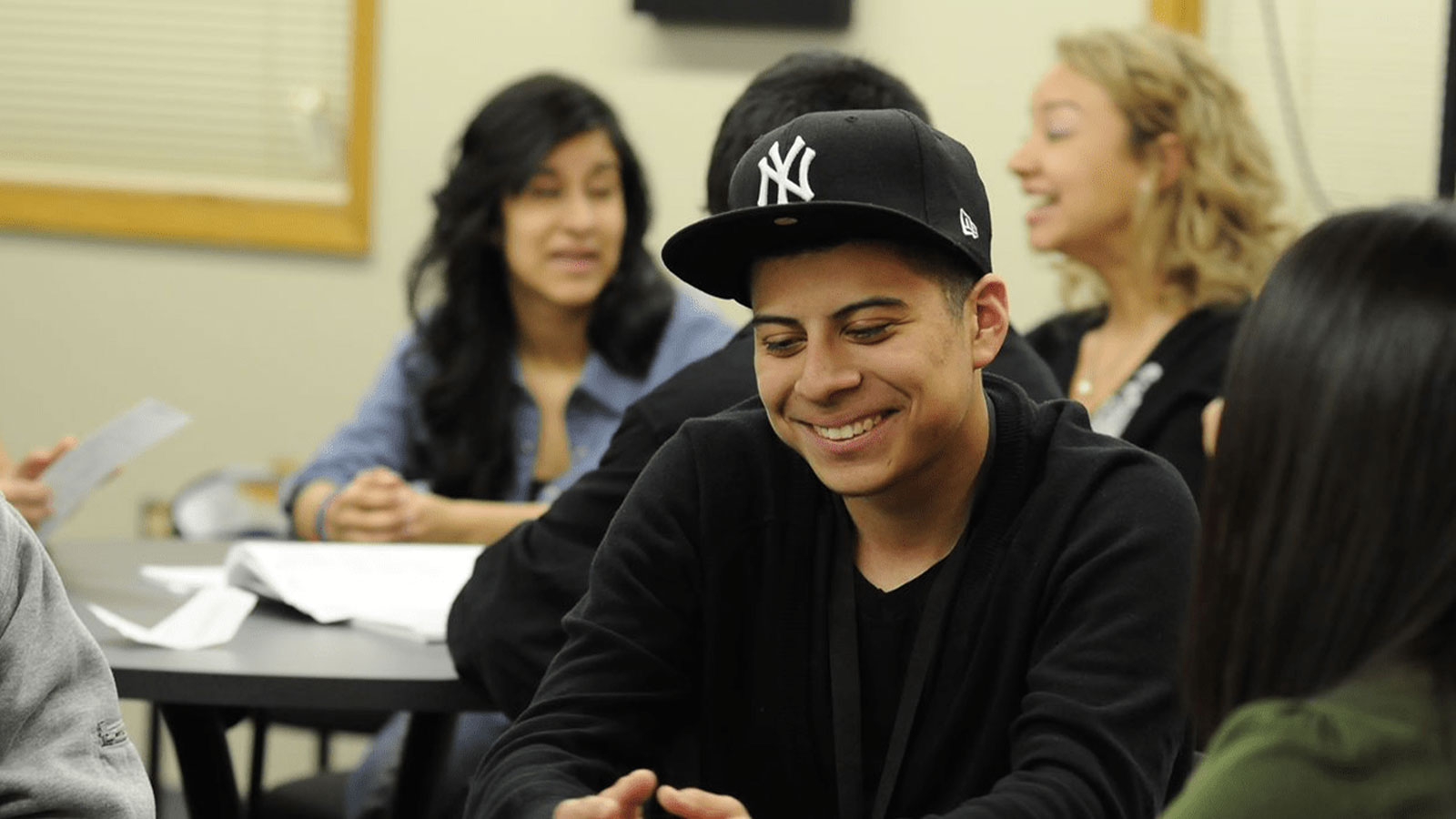AVID is best-known for its work in K-12, supporting students who are traditionally underrepresented in higher education to become college-ready and equipping them with the tools to reach college graduation. To support students who didn’t have access to AVID before college, the organization saw an opportunity to expand its core principles to the higher education environment.
AVID for Higher Education (AHE) works with two-year and four-year colleges and universities to establish the academic skills and habits necessary for students to persist in college. We are supporting AHE’s implementation at schools across the country to improve student persistence and graduation outcomes for economically disadvantaged and first-generation students. (AHE) works with two-year and four-year colleges and universities to establish the academic skills and habits necessary for students to persist in college. We are supporting AHE’s implementation at schools across the country to improve student persistence and graduation outcomes for economically disadvantaged and first-generation students.
Based on the unique needs of each campus, this approach may include coaching and professional development for faculty and staff, focused on high engagement practices that can be immediately incorporated into the classroom. The AHE Student Success model works with instructors to develop or strengthen first-year experience courses, helping ease the transition to campus, while providing students with a support structure and academic success skills. Also, AHE’s Teacher Preparation model works with colleges and schools of education to provide training for future teachers so they are better prepared to meet diverse student needs.
We recently spoke with Betty Krohn, Director of AVID for Higher Education, about how the organization is helping colleges become “student ready,” to address the diverse needs of today’s college students and support them to graduation. Check out our conversation below, and don’t miss the full “On College Success” blog series here.
How did AHE get started?
The AVID story began with one teacher who wanted to make a difference. In 1980, the organization was founded to give every student the opportunity to be successful, focusing on the students that had not been successful in the past. Over the past 40 years, AVID has helped empower students with lifelong skills that help drive their success in college and into their careers.
In 2009, the Texas Higher Education Coordinating Board began to recognize the success that AVID students were achieving in districts across the state. They wanted to bring these outcomes to college campuses across Texas, and that’s how we started our earliest partnerships with nine colleges back in 2010. Today, we serve over 100,000 students and their faculty in more than 50 two-year and four-year colleges across 16 states.
How did you get started in supporting students to college graduation? What motivates you in this work?
Working as the Director of Dropout Prevention for Arlington ISD in north Texas, one of my duties was overseeing AVID implementation. As a former teacher and administrator with a doctorate in curriculum instruction, I knew that the heart of student success is how teachers teach. The AVID framework took the mystery out of why one student could read a chapter and walk away with understanding, and another student could read the same chapter, but not walk away with that meaning. What practices can we put in place to level that playing field so all students can be successful with rigorous content? This approach resonated with my own philosophy around student success.
Today, what drives my work every day is the understanding that providing content and a pathway isn’t enough – you must ensure students are moving through that pathway, whether that’s in K-12 or on the track towards college graduation. AVID has always focused on college readiness, so seeing students through to college graduation is a natural extension of that work. We can get students ready for college, but we also need to make sure that they’re successful when they’re there.
Could you share how AHE has made a difference in one of your student’s lives?
One way we support students is by training tutors for college tutoring centers. Emmanuel Sims was an education major at Jarvis Christian College in east Texas. He decided to become an AVID peer tutor, hoping to learn strategies to become a more effective teacher in the future. But after hours of training, he was skeptical. What did Socrates’ ways of teaching have to do with being successful in college?
When Emmanuel began struggling in his own coursework, he decided to give the AVID approach a try. That’s how he realized that the strategies he brought into his work as a tutor could impact his own success – helping him learn challenging material and bringing a failing grade in chemistry all the way up to an A. In his own words, “I was an AHE tutor in college before I ever realized I was [also] an AVID student.” (Learn more about Emmanuel’s story here.)
What is your vision for higher education in the coming years?
We’re at a time where education is changing. Students have different needs, and we are evolving to serve those needs rather than taking a one-size-fits-all approach. This starts by taking a more holistic view of students, supporting them academically, socially, and emotionally through their college journey. When it comes to advising, this means guiding students towards the coursework they really need. Step into the classroom, and you see our colleges moving towards more modular furniture that can be moved and shaped in different ways to allow collaboration and teamwork, driven by our instructional strategies. Meet students where they are with online learning, finding ways to engage them as successfully as you do face-to-face. When you know who your students are, you’re better equipped to help them succeed!
